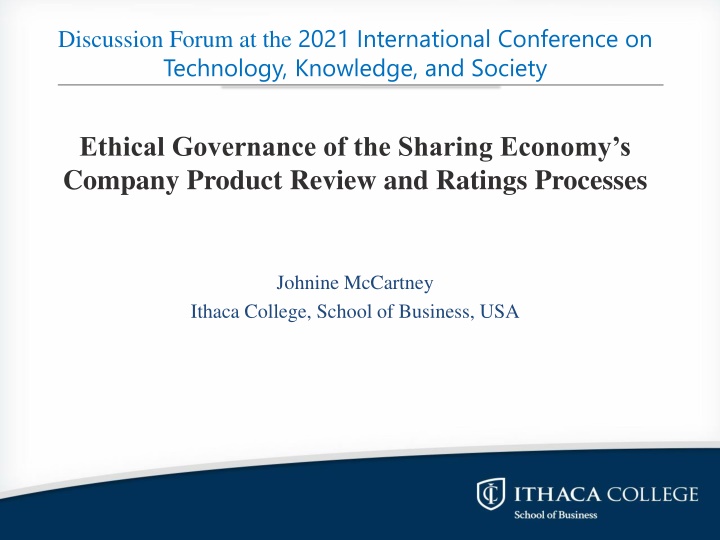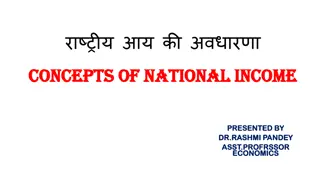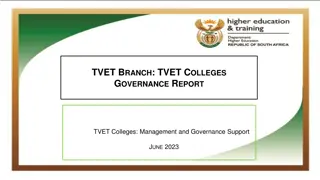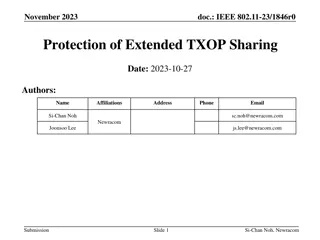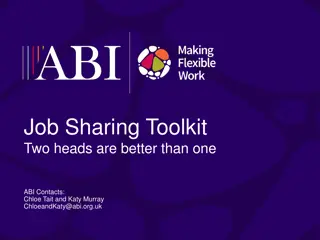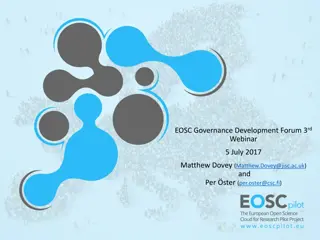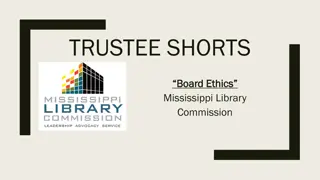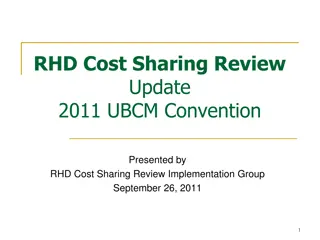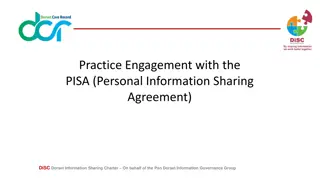Ethical Governance of Sharing Economy Product Review Processes
The Sharing Economy, defined as P2P sharing of underutilized resources, has seen vast digital transformation. This literature review delves into the significance of online product reviews, the impact on traditional industries, trust-building by service providers, and international expansion challenges and opportunities. The validity of online ratings and the consumer landscape in a post-truth world are also explored.
Download Presentation

Please find below an Image/Link to download the presentation.
The content on the website is provided AS IS for your information and personal use only. It may not be sold, licensed, or shared on other websites without obtaining consent from the author.If you encounter any issues during the download, it is possible that the publisher has removed the file from their server.
You are allowed to download the files provided on this website for personal or commercial use, subject to the condition that they are used lawfully. All files are the property of their respective owners.
The content on the website is provided AS IS for your information and personal use only. It may not be sold, licensed, or shared on other websites without obtaining consent from the author.
E N D
Presentation Transcript
Discussion Forum at the 2021 International Conference on Technology, Knowledge, and Society Ethical Governance of the Sharing Economy s Company Product Review and Ratings Processes Johnine McCartney Ithaca College, School of Business, USA
Sharing Economy The Sharing Economy can be defined as peer to peer (P2P) sharing of access to underutilized resources, without the transfer of asset ownership Vast Digital Transformation over last two decades. Resurgence driven by changing consumer attitude, concerns over the environment, and technology driven communications and payment systems. Types of Sharing Economy Services & ratings and reviews are of greater consequence to both the consumer and wage earner.
Increased Diversity of Services on Sharing Economy Platform Ride and car sharing e.g. Uber and Lyft Vacation home rentals e.g. Airbnb, VRBO Peer-to-Peer Lending - e.g. Lending Club Crowdfunding e.g. Kickstarter Coworking Major cities (e.g. Chicago the Coop) Knowledge and Talent Sharing e.g. UpWork Caregiving Services e.g. Care.Com
Literature Review: Online Product Reviews Triadic framework with three principal actors (Benoit et. al., 2017; Maarten at. Al., 2017 ) Firms as platform providers Peer Service providers Peer customers Social media have created liquid spaces of interaction where post-fact truths are boosted by misinformation and populist discourses that are easy to distribute but difficult to refute (Bode and Vraga 2015; Dalrymple, Young and Tully 2016; Lewansowski et al. 2012; Speed and Mannion 2017; Vraga and Bode 2017). Kozinets The ratings and review process builds a foundation of trust among strangers (Luca, 2016; Thierer at. al., 2016) Social media have created liquid spaces of interaction where post-fact truths are boosted by misinformation and populist discourses that are easy to distribute but difficult to refute (Bode and Vraga 2015; Dalrymple, Young and Tully 2016; Lewansowski et al. 2012; Speed and Mannion 2017; Vraga and Bode 2017). P2P transactions could not function without the rating system that creates trust (Huurne, et. al., 2017)
Literature Review: Online Product Reviews (continued) Impact on traditional industries (Adom, 2018; Birinci, Berezina and Cobanoglu, 2018; Guttentag et. al., 2017) How do service providers improve trust (Cho, Park and Kim, 2019; Teubner Hawlitschek and Dann, 2017) International expansion problems/opportunities (Uzunca, Richtering and Ozcan, 2018) Validity of online ratings (De Langhe et. al., 2016; Kozinets, 2016; Smith, 2016) Consumer Quagmire in Post-Truth World Kozinets, R. (2020). Introduction to Special Issue: Trust in Doubt: Consuming in a Post-Truth World. Journal of the Association for Consumer Research, 5(2), 130 136.
Literature Review (continued) Edleman Trust Report (2021) When the government is absent, people clearly expect business to step in and fill the void, and the high expectations of business to address and solve today s challenges has never been more apparent. The heightened expectations of business bring CEOs new demands to focus on societal engagement with the same rigor, thoughtfulness, and energy used to deliver on profits. When the government is absent, people clearly expect business to step in and fill the void, and the high expectations of business to address and solve today s challenges has never been more apparent. The heightened expectations of business bring CEOs new demands to focus on societal engagement with the same rigor, thoughtfulness, and energy used to deliver on profits.Practical Implications Advantageous to set industry standards to enhance perceived trust in review processes, encouraging growth and potentially mitigating regulatory interference.
The Influence of Online Reviews Social communication changed drastically Service providers promoting online Consumers finding service providers online Consumers/providers sharing opinions on social media Trust in other peers is higher than trust in companies or institutions. (Edelman trust barometer report) These reviews change consumer attitudes and purchase intentions Add some statistics here
Consumer Acceptance of Online Reviews Study (Unsal & McCartney, 2018)Survey consumers to find out:
Research Objectives Literature Review of Current Governance Practices of Service Economy Firms Across Industries Transparency of Practices Consistency within Industries Exploration of Best Practices Examination of Differences in Consumer Attitudes
Table 4. How often do you rate your host? Home Sharing Services Ride Sharing Services Number of times used Frequency % Frequency % Not at all Occasionally Somewhat frequently Frequently Almost always 67 49 34 57 97 22 16 11 19 32 24 63 47 57 114 8 21 15 19 37
Table 5. Respondent perceptions about the ratings and reviews of Home Sharing and Ride Sharing Services Home Sharing Sites Percent Negative Ride Sharing Sites Percent Negative Percent Positive Percent Positive Perceived Review Credibility Questions (1+2) (4+5) (1+2) (4+5 Can t be trusted (1) Can be trusted (5) 4 75 5 77 Inaccurate (1) Accurate (5) 5 74 5 74 Unfair (1) Fair (5) 5 70 5 72 Do not tell the whole story (1) Tell the whole story (5) 15 73 14 52 Biased (1) Unbiased (5) 19 70 18 47
Table 6. Respondent perceptions about anonymous ratings and reviews of Home Sharing and Ride Sharing Services (Percent) Perceived Anonymous Review Credibility Questions Disagree* Agree* Anonymous reviews can be trusted more 48% 27% Anonymous reviews are fairer 48% 26% Anonymous reviews are more accurate 48% 27% Anonymous reviews tell more of the whole story 45% 33% Anonymous reviews are more unbiased 45% 30%
Table 7. How often do you consider ratings and reviews to help with your decision to select a service? Home Sharing Services Ride Sharing Services Utilization of ratings and reviews Frequency % Frequency % Not at all 12 4 39 13 Occasionally Somewhat frequently Frequently 33 11 63 21 33 11 67 22 83 27 73 24 Almost always 143 47 63 21
Summary and Conclusions About one third of the respondents have not used home sharing services during the last year while 42 percent used these services 1-2 times last year. Service quality measurements were relatively high. Positive attitudes (68 percent) for home sharing services Positive attitudes (88 percent) for ride sharing services. Ratings are extremely important in establishing trust. It was noted that, 62 percent of the respondents somewhat frequently, frequently, and almost always rated their hosts.
Summary and Conclusions (Continued) Literature indicates that consumers are more likely to trust negative reviews than the positive ones. Our sample indicated that 13 percent of the respondents wrote negative reviews for home sharing services while 28 percent wrote negative reviews for the ride sharing services. The respondents generally believed that ratings and reviews were trustworthy, accurate and fair. In the home sharing industry, respondents believed that these ratings could be trusted (75 percent), are accurate (74 percent), and fair (70 percent). The corresponding figures were 77 percent, 74 percent, and 72 percent respectively for the ride sharing industry.
Summary and Conclusions (Continued) Our respondents believed that anonymous reviews were less credible. Discrimination is one of the issues discussed in literature Only 10 percent of the respondents indicated that there might be some discrimination in the home sharing market. Only 9 percent in the ride sharing market had the same perception. About 70% of the participants agreed or somewhat agreed that SE ratings and reviews were credible. The credibility measures, as noted earlier, include: telling the whole story being unbiased Trustworthy accurate and fair.
Limitations of this study This was an exploratory study based on a American sample. The results may not be generalized to other cultures. The millennials dominated the sample. So the findings may not be applicable to other age groups.
Future Research Potential avenues of further research could include: Are there adequate enough points of differentiation in the ratings and review process? Do consumers hesitate to give Ride Sharing drivers poor ratings out of concern for their economic welfare? What are the consequences to the platform when a consumer or service provider believes they were unfairly given a negative rating. Are consumers concerned over bias given Lyft s recently enacted practice of rating a driver as a 5 if the consumer does not rate the driver. An examination if Airbnb s policy of only allowing 14 days after check out to do a review. This might be hindering participation in their Home Sharing review process. Are there major differences between gender, age groups, and income levels?
